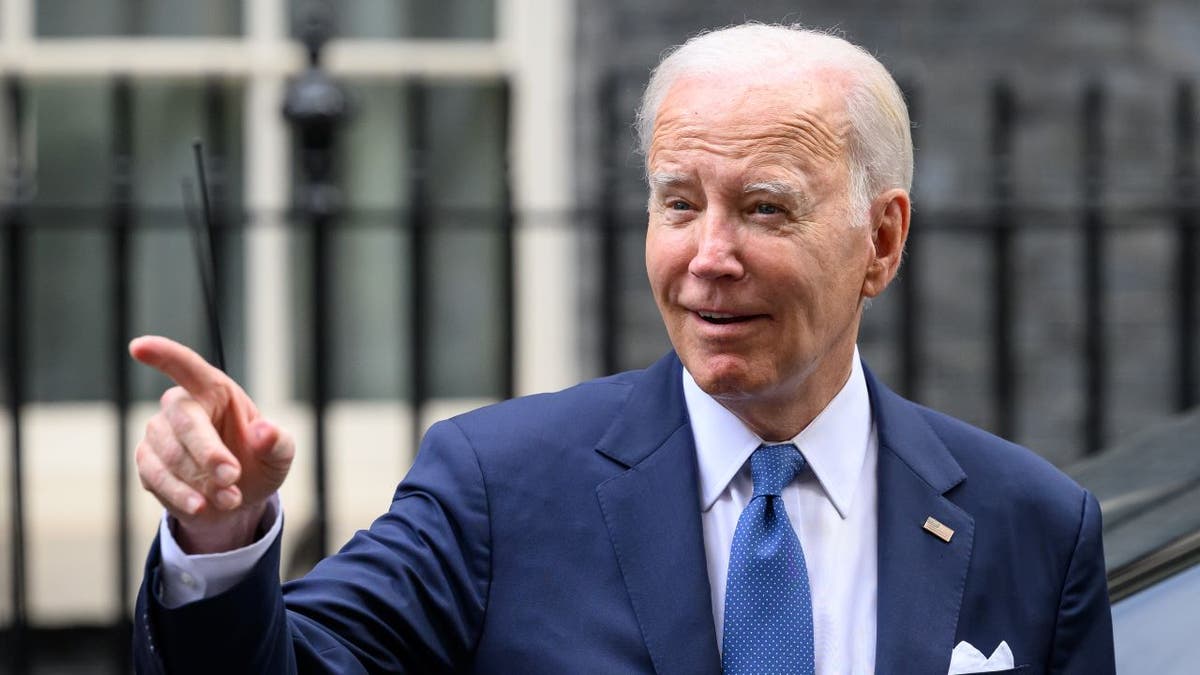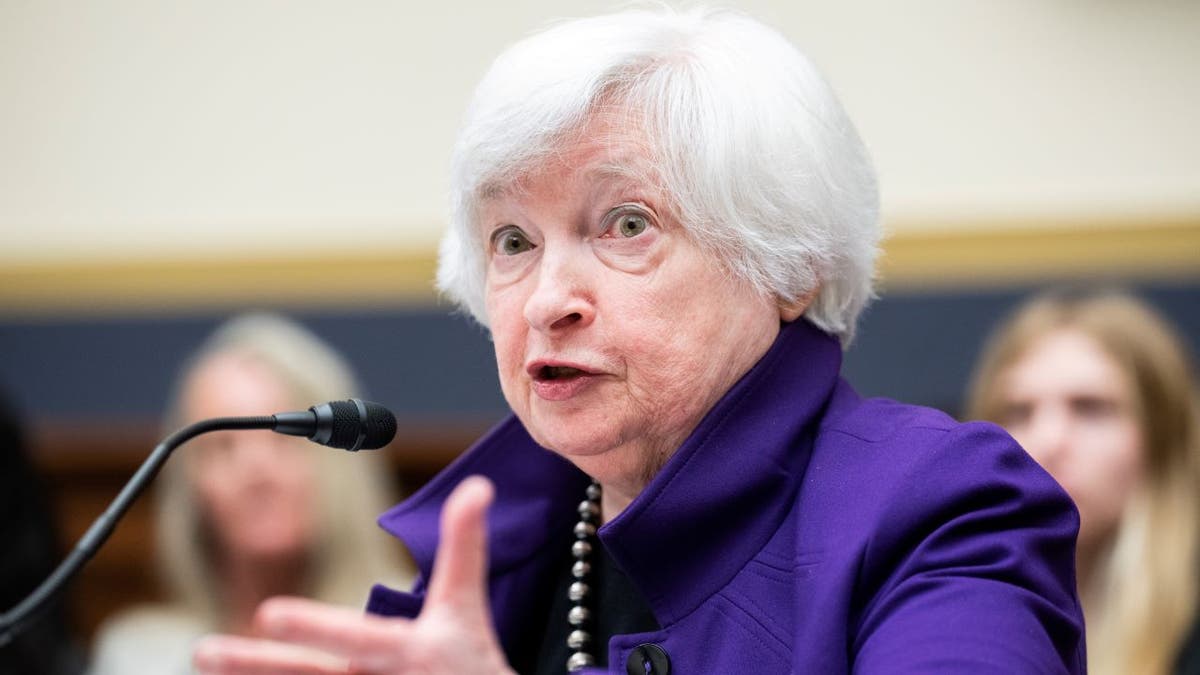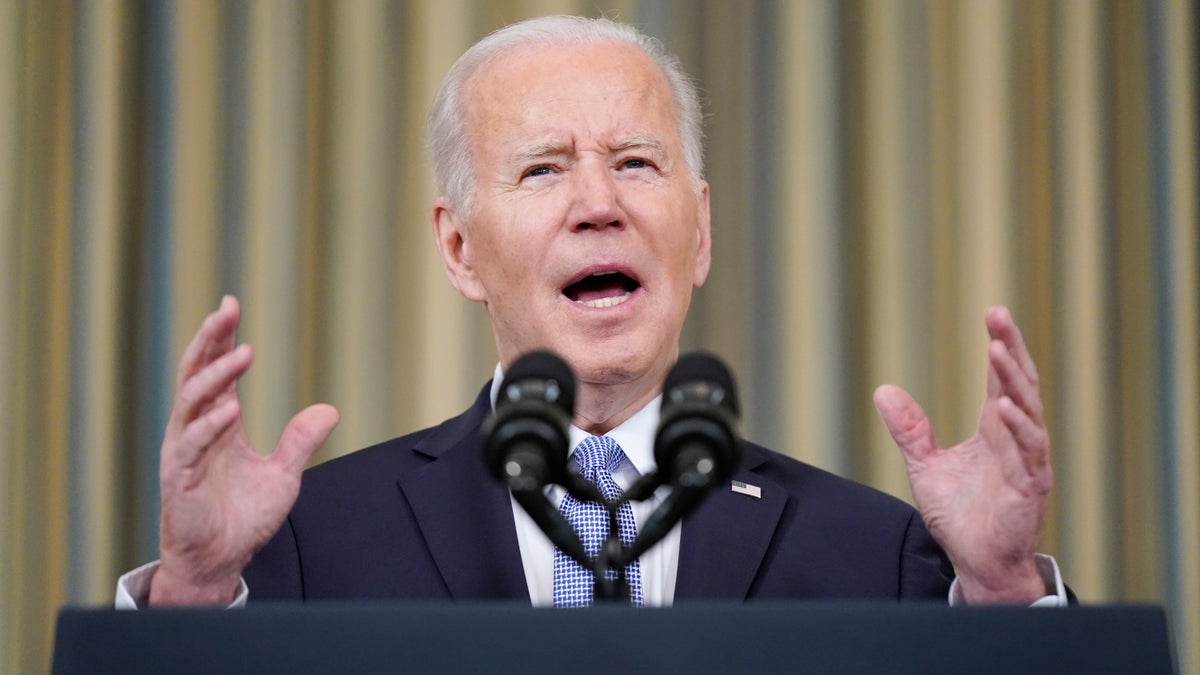US national debt path is a catastrophe: Steven Moore
Fox News contributor Robert Wolf and former Trump economic adviser Steve Moore discuss the state of the U.S. economy as the debt default deadline looms on 'America Reports.'
The U.S. national debt has increased by $1 trillion in the five weeks since President Biden signed a bill into law that effectively turns off the debt ceiling until 2025.
According to Treasury Department data, the total national debt stood at $32.47 trillion on July 6, $1 trillion more than the $31.47 trillion level last seen on June 2. The national debt had been stuck at or near that June 2 level for months because the government had hit the debt ceiling and was legally prohibited from borrowing any more money.
On June 3, however, Biden signed legislation reflecting negotiations with House Republicans that requires a small spending cut next year and allows unlimited federal borrowing until 2025. With no debt ceiling in effect, federal borrowing jumped more than $350 billion in a single day and crossed the $32 trillion mark in less than two weeks.
That quick increase reflected pent-up demand for borrowing that the government delayed while the debt ceiling deal was being negotiated.
NATIONAL DEBT HITS $32 TRILLINO TWO WEEKS AFTER DEBT CEILING DEAL

The national debt has jumped more than $1 trillion in the five weeks after President Biden signed a bill into law that temporarily suspends the debt ceiling. (Leon Neal/Getty Images)
The national debt has increased $4.7 trillion since Biden took office in January 2021, and is expected to keep rising in the face of annual budget shortfalls of at least $1 trillion per year. So far in fiscal year 2023, the government has spent $1.16 trillion more than it has collected and the Biden administration is predicting a $1.5 trillion budget deficit when the fiscal year ends in September.
Biden has continued to boast that he has shrunk the budget deficit.
"And by the way, parenthetically, I want you to hear about the deficit. I cut the deficit $1.7 trillion in two years," he said last week. "Nobody's ever done that – cut the debt $1.7 [trillion]."
But many mainstream news outlets have discounted that bragging point because the lower deficit mostly reflects the end of emergency spending related to COVID-19 and increased tax revenue that reflects the post-COVID economic recovery. When COVID hit in 2020, federal spending exploded by $2 trillion – the government spent a total of $6.5 trillion that year instead of the $4.4 trillion it spent a year earlier, and the budget deficit exceeded $3 trillion.

Treasury Secretary Janet Yellen delayed certain federal spending while the debt deal was being negotiated, and borrowing surged as soon as the ceiling was suspended. (Tom Williams/CQ-Roll Call, Inc via Getty Images)
Even though the COVID emergency has ended, federal spending has remained high. It is estimated to spent $6.3 trillion in the current fiscal year, still well above the $4.4 trillion it spent in 2019, before COVID hit.
Instead of falling back to 2019 levels, federal spending is not expected to dip below $6 trillion again. Treasury Department projections expect that the government will spend more than $7 trillion by 2025 and will exceed $8 trillion in spending by 2028, accompanied by more borrowing that is fast approaching $2 trillion per year.
As the debt ceiling deal was being negotiated between Biden and House Speaker Kevin McCarthy, R-Calif., several conservatives argued that the GOP should be pushing for much steeper cuts to federal spending.
CORI BUSH'S $14 TRILLION REPARATIONS PROPOSAL WOULD EQUAL NEARLY 7 AFGHANISTAN WARS IN SPENDING

While Biden has boasted about reducing the budget deficit, most see that drop as a reflection of lower COVID spending and higher tax revenues, and deficits are expected to keep rising toward $2 trillion per year. (AP Photo/Patrick Semansky, File)
Russ Vought, former President Trump’s director of the Office of Management and Budget, criticized Republicans for moving away from a House-passed plan that would have capped the growth in federal spending to a maximum of 1% per year over the next decade.
CLICK HERE TO GET THE FOX NEWS APP
"They have never been in a stronger place," Vought said in May. "They have passed a bill that this town and the country did not think was possible, they kept their team together, they have 75-25 polling to their backs, they had the Democrats in a situation where they had said you did not negotiate for months, and yet up against a deadline that’s not a real deadline… they just completely caved."














































